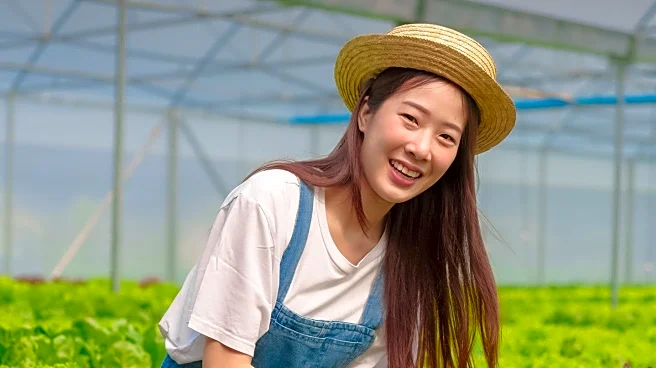What's Happening?
In the Western Division, a rehabilitation initiative is transforming the lives of young boys through farming. Twenty participants attended a camp at Inspire Pacific Village, where they engaged in agricultural activities as part of their rehabilitation process. The program, known as Tagane Mai, integrates farming with other activities such as sports, music, arts, and leadership training to help youths find direction and purpose. Minister for Agriculture and Waterways, Tomasi Tunabuna, visited the camp to encourage the participants, emphasizing the potential for new beginnings through agriculture. The initiative aims to teach life skills and restore confidence, with the boys learning to cultivate backyard gardens, manage small poultry farms, and explore beekeeping.
Why It's Important?
This initiative is significant as it offers a constructive path for rehabilitation, focusing on skill development and personal growth. By engaging in farming, the youths gain practical skills that can lead to self-sufficiency and a sense of responsibility. The program not only addresses immediate needs but also provides long-term benefits by equipping participants with the tools to contribute positively to society. The support from the Ministry of Agriculture highlights the importance of government involvement in community-based rehabilitation efforts, potentially serving as a model for similar programs elsewhere.
What's Next?
The program is expected to continue expanding, with potential for increased government support and community involvement. As the participants develop their skills, they may have opportunities to engage in larger agricultural projects or pursue careers in related fields. The success of this initiative could inspire other regions to adopt similar rehabilitation strategies, fostering a broader societal impact.
Beyond the Headlines
The ethical dimension of this initiative lies in its focus on rehabilitation through empowerment rather than punishment. By providing a nurturing environment, the program challenges traditional approaches to juvenile rehabilitation, promoting a culture of growth and positive change. This shift could influence broader societal attitudes towards rehabilitation and the role of agriculture in community development.









